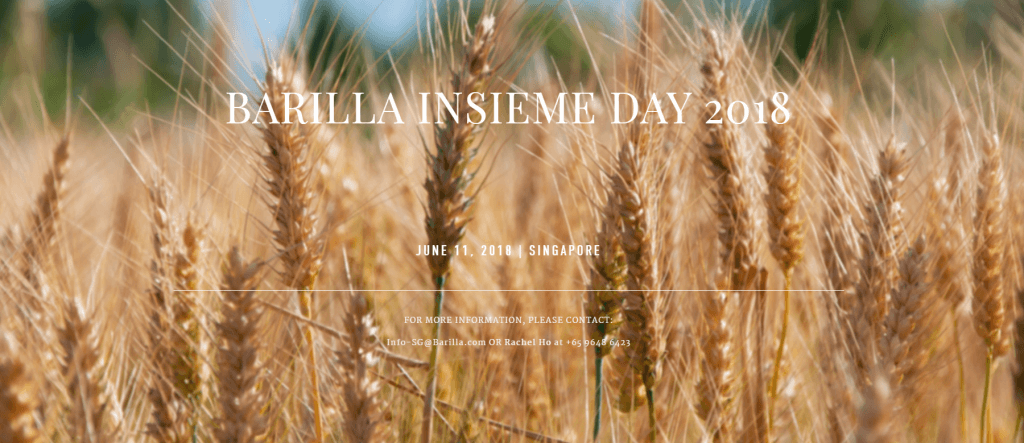It is by now a well-known fact that there is a striking paradox within our global food system: so many still go hungry, while so many others face staggering rates of overweight and obesity.
Nowhere is this paradox more evident than in Asia, where a recent joint report from UNICEF, WHO and ASEAN(1) found that within the Southeast Asian region:
- 8 million chronically malnourished children will never reach their full potential for growth, learning or earning, and four million have a 12 times higher risk of death;
- A simultaneous rapidly-growing number of overweight and obese children at risk of diet-related disease will bring personal and financial costs to them, their families, and their health care systems;
- The agricultural sector has grown exponentially, without similar growth in dietary diversification, investment in agricultural research and improvement in processes to reduce environmental impact.
Further research confirms this, including the one conducted by the Economist with Barilla Foundation. Particularly, the world’s two biggest populations, China and India, rank poorly across measures of sustainability of food loss and waste, sustainable agriculture and nutrition(2).
Globally, it has become clear that if the food system is to achieve the United Nations’ ambitious sustainable development goals by 2030, we must not overlook the fact that our decisions as brands and as consumers have a direct impact on the environment and on the ability of a population to achieve its maximum potential.
As a fourth-generation owner of Italy’s Barilla Group, a world leader in pasta and active player in the food system, I believe it is critical that industry, retailers, governments, academia, NGOs and individuals intensify our search for solutions to feeding a global population expected to reach 9.3 billion by 2050(3), in a sustainable way for our Planet.

In partnership with The Consumer Goods Forum, this year’s meeting will be held in Singapore for the first time, and will focus on global food issues impacting Asia, Australia and Africa region specifically. Participants from industry, international organizations and more will gather to work towards addressing immediate needs like transparency and safety within our global supply chain, but also proactively identifying ways to improve the efficiency of our processes, protect both our natural resources and the wellbeing of local communities, and enhance the understanding and intake of nutrition of our people, to provide a concrete action plan and solution as a team, with Barilla driving it forward with all the participants.
What specifically can we do insieme? Here are some initiatives which Barilla undertook, inspired and informed by Insieme Days past, and which were shared, in part or in full, by other players in the food systems in which we operate:
- Ensuring that our portfolio of products meet strict nutrition guidelines. In 2017, we completed the replacement of palm oil as an ingredient across our bakery line, revised the salt and/or sugar content of 12 of our sauces products, and increased our range of better for you products (like wholegrain or gluten-free pasta). We also ensured that we offer recipes for healthy living in line with the Mediterranean lifestyle, consistently ranked as one of the healthiest dietary models in the world.
- Developing a close relationship with farmers and production road maps in countries where we grow our crops. In Italy, we have put in place a sustainable farming project for the durum wheat used to make our pasta. It combines the good agricultural practices of our ancestors such as crop rotation, with modern tools such as advanced meteorological forecasting technology, resulting in a lower use of fertilizers and more fertile land.
- Launching platforms that help our consumers learn more about where their food comes from(4). We built Guardatustesso (Look for yourself) in 2014 as a digital tool to give consumers a first-hand view of the entire sauce supply chain, and take virtual tours of tomato and basil fields. Today this platform also contains new content dedicated to pasta and the wheat origin story – and you can even use the platform to book a real-life visit to a Barilla plant.
- Reducing pollution and waste by setting firm targets to decrease our greenhouse gas emissions and the water we use during production, and ensuring that our packaging is 100% recyclable and made from responsibly managed forests. We even built a train line that runs directly into the heart of our main pasta production facility in Parma, Italy, helping to reduce pollution by reducing the use of trucks.
During Insieme Day, to be held on June 11 at the Asian Civilizations Museum, we will be soliciting input and ideas that can ignite real action.
Each one of us can start making an impact – even small changes can help, like making an effort to eat mostly healthy foods at the bottom of the food pyramid that have a low ecological footprint like grains, vegetables, and fruits.
As caretakers for the future, all of us – individuals, food and other companies, governments and NGOs – must follow the mantra of my father, Pietro Barilla, who counseled to “give people food you would give to your own children” and that “everything is done for the future – let’s forge ahead with courage!”
(1) Regional Report on Nutrition Security in ASEAN. https://www.unicef.org/eapro/Regional_Report_on_Nutrition_Security_in_ASEAN_%28Volume_2%29.pdf
(2) Food Sustainability Index: http://foodsustainability.eiu.com/country-ranking/
(3) Food and Agriculture Organization of the United Nations. http://www.fao.org/sustainability/background/en/
(4) Guardatustesso https://www.barilla.com/it-it/guarda-tu-stesso
This post was written and contributed by:
Guido Barilla
Chairman of the Barilla Group, and
the Barilla Center for Food & Nutrition (BCFN) Foundation

